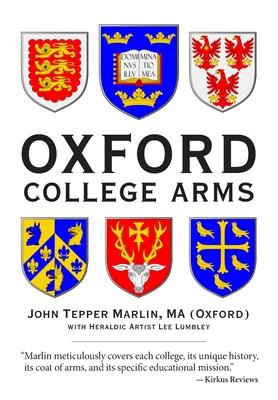Oxford College Arms is an accessible 112-page handbook designed to open up the treasure chest of ancient coats of arms and relate them to today's University and college branding. The book is written to help current Oxford students and applicants to Oxford college find their way among the 44 separate colleges and Permanent Private Halls. It is also useful as a guide and reference for college and university staff, school advisers, parents and alumni. It will also be handy for tourists, Oxfordshire residents, and visitors to Oxford to help them understand the connections between the college arms and history, and the living institutions of today. It has interest and value for anyone interested in heraldry and British history. The large marketplace for branded goods in tourism and souvenir shops provides a platform for promoting the book as a guide to the merchandise. The book also serves as a guide for the purchase and collection of college memorabilia.
The colleges are the human face of Oxford. The halls came before the colleges and the colleges became more important to the life of the University than the central administration. Oxford as long ago as 1096 had students coming to study, usually novices heading for monasteries or the priesthood. Starting in 1167, when Henry II prohibited students going to Paris to study, Oxford began its relentless growth, stopping only during the reigns of Henry VIII, who dissolved the monastic colleges, and Charles I, who depleted the assets of all the colleges to pay for his defense against the Parliamentary army. The number of students spurted in the 20th century, especially after the Second World War when the British Government wisely invested in educating the armed-services war survivors and strengthened university programs to develop needed new professional specialties and skills.
- New graduate (also called "postgraduate") programs and departments were created independent of the colleges, strengthening the central University administration.
- Students and faculty tied primarily to departments missed the intimacy and brand affiliation of being attached to a college.
- Existing colleges expanded significantly in size, establishing new buildings inside and outside their existing space.
- Several new colleges were created, including two as adjuncts of the University (St Cross for graduates in the sciences and Kellogg for continuing education).
- Permanent Private Halls were encouraged to consider becoming independent colleges. The PPHs were all (like the ancient colleges) religious in origin. Six remain, but some expanded their size and reduced their formal affiliations with religious denominations and were promoted to college status.
Students and faculty must apply to a college or hall, and nowadays they almost always live in one. That means they need a quick link to identifying each college. The coats of arms and Oxford College Arms help differentiate among the colleges, going beyond the physical buildings and grounds to their spiritual legacies.
